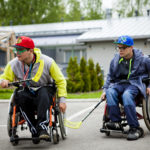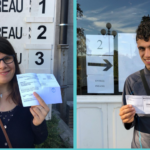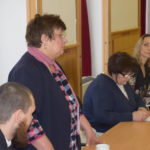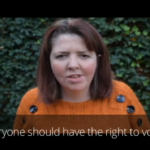The right to vote is one of the most fundamental rights of European citizens. It is not only about taking part in the political process, but about being included in society and having our voice heard. However, several groups of people are denied this right to vote, due to the fact that European and national elections are not accessible for them. Be it for the electoral campaigns providing information which is complicated and hard to understand, or for lack of accessibility measures, the general set up of elections often excludes some citizens who therefore cannot exercise their right to vote and take part in elections.
This includes people with intellectual, sensory and physical disabilities, as well as the elderly and other groups at risk of non-participation due to language or other barriers such as EU citizens living in another EU member state.
Results
Within the framework of this project, Inclusion Europe undertook research on the current accessibility of elections for people with disabilities in Europe through questionnaires sent to its member organisations and to the electoral commissions or government departments responsible for organising elections. The research revealed that restrictions on legal capacity, lack of access to information and polling stations and a general lack of awarenesswere among the main barriers to participation in elections by people with disabilities.
To overcome these obstacles, the projects partners met with national and European politicians to raise awareness about this problem and encourage them to make their information more accessible.
They also developed three useful publications available for download from the project website.
- A national guide entitled “Voting for All!” to show national associations what they can do in the run-up to elections to ensure that they are as accessible as possible, by the provision and effective dissemination of accessible information and by raising awareness amongst politicians, electoral bodies and citizens themselves about the importance of accessibility measures and full participation of all citizens in elections.
- Recommendations for Accessible Elections in Europe covering five key areas: legislation on legal capacity, accessible information, training, support for decision-making in voting, and access to the voting process. These recommendations and their easy-to-read version are available in 21 EU languages.
- A collection of Good Practices for Accessible Elections in Europe published in English, French and Czech.
The fruitful cooperation between disability organisations and intergovernmental bodies, such as the Council of Europeand the EU Fundamental Rights Agency experience during the project period will continue in the future to further disseminate the ADAP results and sustainably enhance election accessibility in Europe.
More information can be found on the project website.
| Implementation Period | 1 December 2009 – 30 June 2011 |
| Financed by | European Commission – Directorate General Justice, Freedom and Security under the Specific Programme “Fundamental Rights and Citizenship“ |
| Project Number | JLS/2008/FRAC/AG/1317 – 30-CE-0306225/00-14 |
| Project Coordinator | Inclusion Europe |
| Project Partners | NOUS AUSSI, Association Française des Personnes Handicapées Intellectuelles ENABLE Scotland Inclusion Czech Republic |






